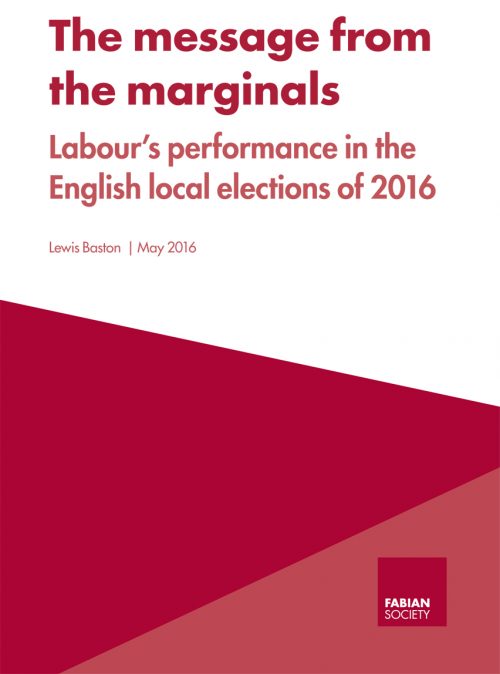The message from the marginals: Labour’s performance in the English local elections of 2016
Local election results show there is no room for complacency for Labour. May 2016

- The message from the marginals
- Lewis Baston
- 13 May 2016
Labour averted a poor result in the 2016 local elections, but a lead in national share of the vote of 1 per cent is not enough to inspire confidence.
- There is absolutely nothing to be complacent about. In the last half-century, no opposition party that has been more or less level in the local elections a year into the parliament has gone on to win the general election.
- Turnout in most Labour wards remained poor, often declining since 2012 in the safest areas. There is no sign that the party is mobilising poor and working class electors any better than it has for years.
- Labour’s best results were in metropolitan areas, university cities and in some high-growth towns in the south such as Swindon and Milton Keynes which have started to be affected by the political changes that have transformed London.
- Labour’s worst results relative to 2012 were mostly in the Midlands, particularly smaller working class towns which have become increasingly car-owning, home-owning and aspirational, like Nuneaton and Rugby. The results in suburban areas of northern cities such as Bury North and Pudsey were also disappointing.
- Labour escaped lightly in terms of net losses in seats and councils. A uniform swing of 3 per cent to the Conservatives since 2012 would have lost the party at least 88 seats. Labour councillors and councils, however, managed to retain many marginal seats. In some areas such as Ipswich Labour managed to make net gains despite a typical-sized pro-Tory swing in voting.
- No party was putting a strong national case in the English local elections that could have generated a strong tide in favour of that party. The result was English local election voting in its default state as Labour and the Conservatives both turned out their habitual voters, the Lib Dems recovered some ground for local reasons or from protest which they would not support as a national government.
- Adding up local results by parliamentary constituency, Labour would still be short of an overall majority even if its best results were repeated everywhere. The gains, however, were patchy with about one target in three being missed.
- Local elections flatter Labour. It is established fact that Labour did better in most areas in the local elections in 2015 than in the general election, and no reason to expect the trend to have weakened this year. Voters are willing to support parties for local reasons or from protest which they would not support as a national government.
Author
Fabian membership
Join the Fabian Society today and help shape the future of the left
You’ll receive the quarterly Fabian Review and at least four reports or pamphlets each year sent to your door
Be a part of the debate at Fabian conferences and events and join one of our network of local Fabian societies
Join the Fabian SocietyBe the first to know
Sign up to the free Fabian Society newsletter
Find out about the latest Fabian Society research, publications and events with our regular updates
Sign up today